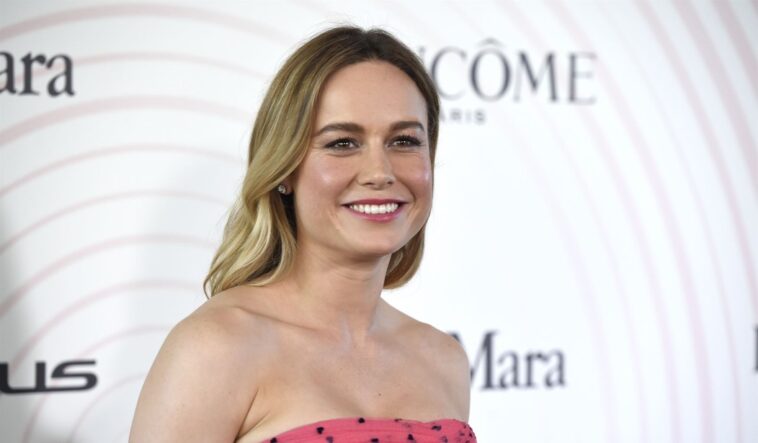Disney/Marvel’s latest outing, The Marvels is projected to bomb at the box office. Not only has it gone through a production hell with reshoots, rewrites, and its director leaving the project at one point, but the critic reviews haven’t been kind either.
The media is attempting to run defense for the film, but the film is apparently so awful that there are some outlets not willing to sully themselves with the lie.
Why is the film going to bomb?
The reasons are many. Superhero fatigue is definitely a factor, though I’d say bloated budgets and bad script writing play an even larger part than that.
(READ: Disney/Marvel’s Biggest Reason as to Why It’s Failing So Miserably)
But for this film, in particular, I can pinpoint the largest factor as being the show’s main character, Brie Larson’s Captain Marvel. She’s a character that has become so divisive within the Marvel Cinematic Universe (MCU) thanks to both the unpopularity of the character and Larson herself.
Larson made Captain Marvel a much-disliked character even before her movie was released, making it more about feminist activism than a solid and working part of the MCU. Her attitude toward men soured the film for many, and it only got worse after the movie demonstrated that Carol Danvers was a “strong woman” character, a modern trope for female characters that displays them as stronger, faster, smarter, and effectively flawless. This is usually accompanied by the male characters in the movie being depowered, incompetent, cowardly, or evil.
The film made a joke out of the MCU’s defacto leader Nick Fury, and it’s an issue his character has been suffering from ever since.
As you can see, the requirements for a “strong woman” character in the modern era don’t just infect the character, but every character around them as well. Still, the “strong woman” character herself is ultimately the issue, and the issue is that there is no character there.
Captain Marvel starts the movie having no flaws with the only exception being that she doesn’t realize how perfect she is. She’s more powerful than everyone else and by the end of the film, she realizes her full potential and is even more powerful than everyone else. There’s no real hero’s journey. There aren’t any real stakes. There was never any legitimate tension. Carol Danvers is a flat, uninspiring, unrelatable, and ultimately boring character.
So why see a film with that character being the centerpiece? How could anyone have faith that such a character would be able to create something fun and engaging? Especially when it comes to the rules of feminism being applied to every Disney film as of late, how can we trust that the other two female leads in The Marvels won’t also be boring?
Strong female characters aren’t characters, they’re a parody of a character.
Another recent example can be in the recently released video game “Alan Wake II.” I’ve already given this game a review that you can read by following the link below…
(READ: ‘Alan Wake II’ Couldn’t Be a Bigger Disappointment)
…and I wrote about how the female co-lead in the game, Saga Anderson, suffers from the same “strong woman” trope.
(Spoilers for Alan Wake II ahead)
Saga is a strong black female protagonist who we’re told in one of the opening lines of the game that she is the best FBI detective her superior officer had ever seen. She’s not only a really good detective, she’s an expert medical examiner. When a drowned man who had his heart cut out in a cult ritual wakes up and begins brutally killing police officers around her, not only is Saga the last one standing, but she also manages to scare off the monster. Afterward, she exhibits no emotional or mental shakiness from watching the monster rise from the dead and kill people around her. She even proceeds to go into a dark wood to hunt the monster by herself.
Even if you were a tough male character, watching something like that happen would require a shot of whiskey, a smoke, and a minute to gather yourself. Not Saga, though. She’s too powerful to be bothered by something as trivial as a supernatural slaughter occurring right in front of her.
She’s unrelatable, unrealistic, wooden, and boring, and it drags the whole game down.
These characters are meant to inspire women, but even women don’t seem to want to show up to watch these characters be “strong.” They certainly don’t seem to be willing to show up to The Marvels.
And there shouldn’t be any surprise about this. Having the same plumbing, skin color, or background doesn’t make a character relatable, but Hollywood and ESG-obsessed writers have indoctrinated themselves into believing surface-level qualities are enough to make someone likable.
This is a mistake. What makes a character likable boils down to the character having qualities that go more than skin-deep. They go through hardships, they react to events around them in believable ways, and they can be fearful, happy, or distraught. They’re not islands. They need help. They have things they’re willing to be self-sacrificial for. They lose battles because they aren’t good enough and have to improve in order to come back and win in the second bout. They face consequences for their failures and right the wrongs they caused.
These things can turn a lonely robot into a hero or a lost clownfish into an inspiration. It can make a story about a fox and a hound dynamic and emotional. It can make watching a lion cub turn into a king a story you’ll remember for the rest of your life.
“Strong women” characters aren’t allowed any of these things, as because they can’t experience these character-building moments, they become the weakest characters in literary, cinematic, and gaming history.


